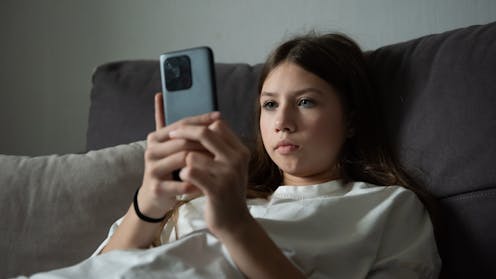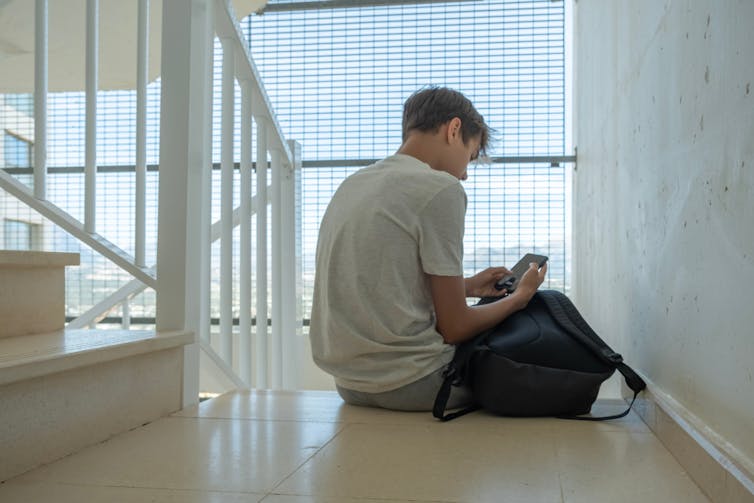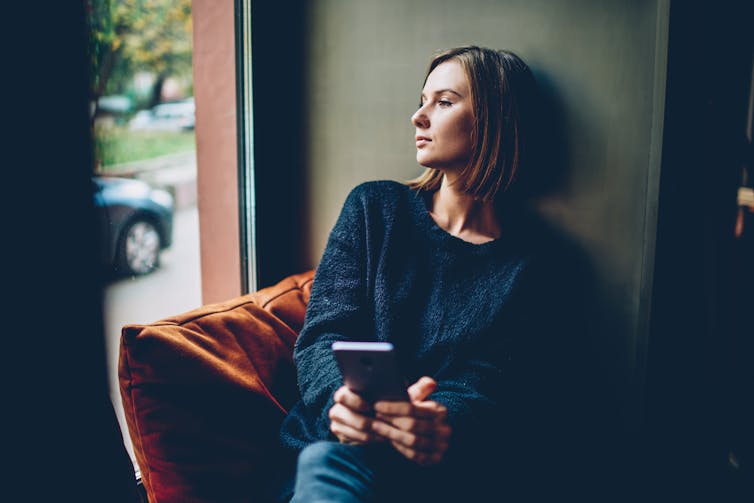
You may have come across those “what I eat in a day” videos on social media, where people – usually conventionally attractive influencers wearing activewear – list everything they consumed that day.
They might seem like harmless fun but in fact they can reinforce dangerous ideas about food, weight and body image.
I’ve worked with people with eating disorders who watch these videos and have seen first hand how harmful this content can be.
Here’s what the research says and what you need to know.
Videos that promote ‘health’ can be unhealthy
“What I eat in a day” videos have been popular for over a decade, with views reaching in the billions.
They target both men and women and many claim to promote health and nutrition. Yet videos such as these can do more harm than good.
Very few of these creators have formal qualifications in health or nutrition, increasing the potential for misinformation.
They often depict low calorie diets, exclude entire food groups or promote “clean eating” (a problematic idea at best).
Some even encourage dangerous behaviours such as skipping meals, eating very little or using laxatives to purge food.
They can also send harmful messages about body image. Many such videos use beauty filters to create images promoting unrealistic body ideals.
These videos often feature shots of how the person looks from the front, the side, in the gym, and in tight, form-fitting clothes. There may even be some “before and after” weight loss pics, sending the harmful message this should be everyone’s goal.
The subtext is clear: “eat what I eat in a day and you can look like me”.
But that’s not just a dangerous idea – it’s a totally false and erroneous one.
Knowing what a certain person “eats in a day” doesn’t mean you’ll look like them if you follow their lead.
In fact, a 24-hour rundown of one person’s food intake doesn’t even provide accurate information about that person’s nutritional health – let alone yours.

You are not them
Like our health, our nutritional needs are unique to us and can vary day to day.
What constitutes a “healthy” choice for one person might be totally different for another depending on things such as:
- genetics
- environment
- age
- what we enjoy eating
- how much energy we use and
- our medical history.
Links between health and diet are best examined over time, not in a single day.
Basing our food intake on a brief snapshot of what someone else eats is unlikely to lead to better health. It might leave you worse off overall.
5 ways these videos can affect mental health
What we watch online can affect our mood, behaviour and body image.
Alarm bells should ring if you frequently see these videos and notice you’re doing or experiencing these five things:
1. disordered eating. Eating less than your body needs, skipping meals, cutting out entire food groups, binge eating and purging are all signs of disordered eating that can lead to serious mental health problems such as eating disorders
2. low mood. Watching videos promoting low-calorie diets can worsen our mood; you might find yourself feeling deflated after comparing yourself to others (or rather, to the version of themselves they promote online)
3. poor body image. Research shows watching “what I eat in a day” videos can leave people feeling worse about their bodies and appreciating them less
4. obsessive thinking and anxiety. Obsessing over the “perfect” diet can increase anxiety about food and eating. Diets that encourage a very detailed approach to nutrition – including breaking meals down into components such as carbohydrates and proteins or weighing food – can further fuel obsessive thoughts
5. narrow life focus. Having your social media feed filled with these types of videos can create an overemphasis on the importance of food, eating and body image on your self-worth. This ultimately affects your health and wellbeing.

OK, so what can I do?
If you’re encountering “what I eat in a day” videos often and find they’re affecting your mood, eating behaviour or sense of self-worth you can try to:
- understand that these videos are not tailored to your individual health or nutritional needs and that many contain harmful messaging
- avoid engaging with videos that promote disordered eating, idealised beauty standards or that make you feel bad after you watch them
- unfollow accounts that regularly post such videos, or tap “not interested” on the TikTok video to stop the algorithm showing you more of them
- balance your social media feed with content focused on other areas of life besides food and eating (such as art, design, animals, books, sports or travel). Fill your feed with interests that improve your personal sense of wellbeing
- consider taking regular breaks from social media and seeing if you feel better overall.
If you do want to view posts about food, seek out creators attempting to buck these negative trends by focusing more on fun and taste.
And if you’re experiencing low mood, disordered eating or body image issues, seek help from your local GP. They can connect you with practitioners who provide evidence-based therapies such as cognitive behavioural therapy.
If you have a history of an eating disorder or suspect you may have one, you can contact the Butterfly Foundation’s national helpline on 1800 334 673 (or via their online chat).
Ultimately, “what I eat in a day” videos aren’t really helpful. They contain very little useful information to guide your health or nutritional goals.
If you are considering making changes to your diet, it’s important to consult a qualified professional, such as an accredited practising dietitian, who can learn about your situation and monitor any risks.
Catherine Houlihan consults with an eating disorders service owned and operated by the Butterfly Foundation.
This article was originally published on The Conversation. Read the original article.







